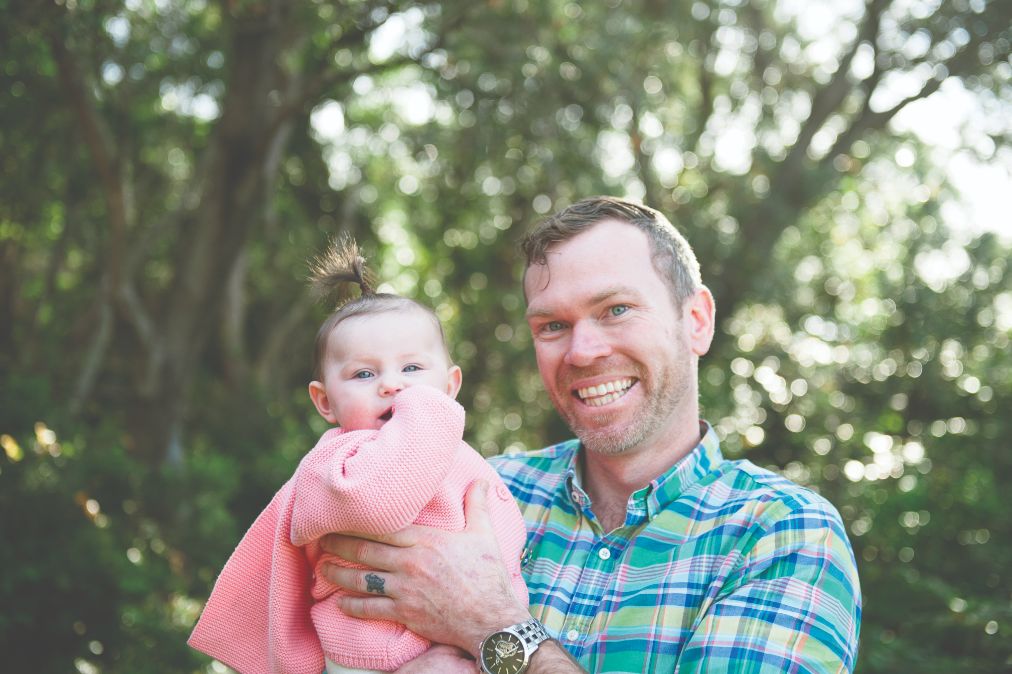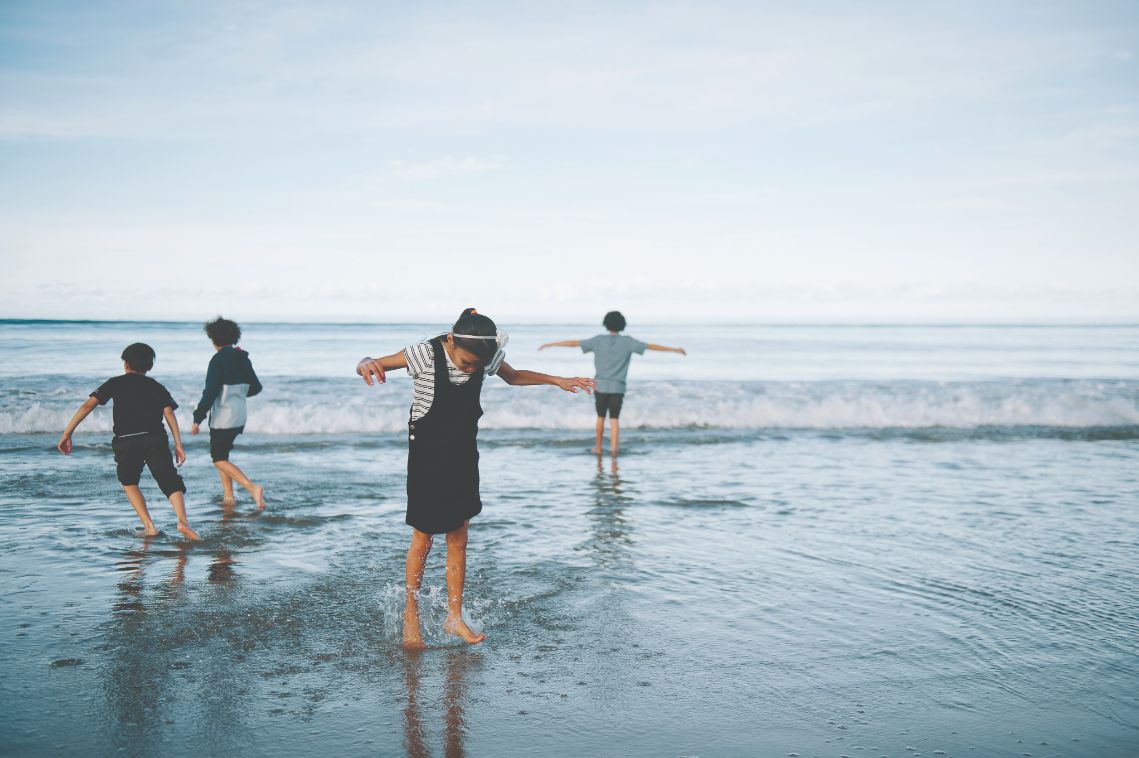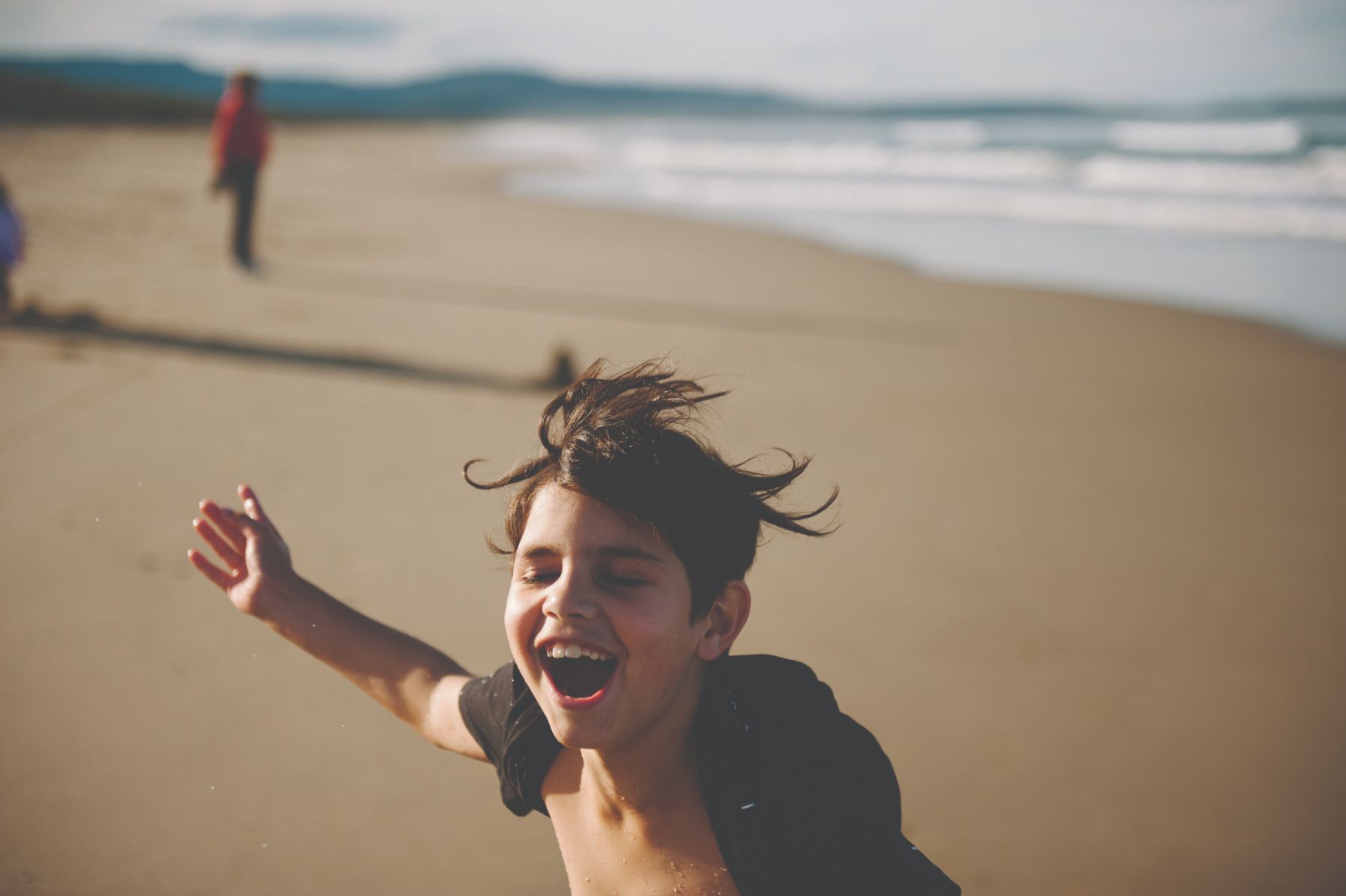Automatic language translation
Our website uses an automatic service to translate our content into different languages. These translations should be used as a guide only. See our Accessibility page for further information.

It was late when I knocked on Linda’s door. I was with another caseworker and two police officers, all crowded together on her porch.
We were there because earlier that afternoon, Linda’s 14 year old daughter Justine had told us she was too scared to go home. Justine explained that when her relatives stayed over, they drank, argued, got into punch-ups and trashed the house. The chaos and violence meant Justine and her five younger brothers and sisters hid in their rooms, trying to get some sleep for school the next day. She said she couldn’t take it anymore.
It was an after-hours call-out and even though I hated to do it, we had to move Justine to an emergency foster carer while we worked out what was happening in her family.
It was only afterwards it dawned on me that Linda must have feared the worst when she opened the door. We learned later that when Justine hadn’t come home from school that day, the whole family had gone out looking for her, getting more and more frantic as the night wore on. They were too scared to involve the authorities; I understood why. As an Aboriginal family they had their reasons to be fearful about putting their hands up for help.
That night Linda and I created a plan to get Justine home as soon as possible. She agreed straight away that certain family members were not allowed in the home anymore and there could be no violence. I looked around the house and I was filled with worry – six children and so much that wasn’t safe. Then I noticed Linda was pregnant. The home was in no shape for a new bub, so we added that to the plan too.
Because it was an after-hours call-out, I didn’t know whether I would see Linda again, but the events of Friday night made me worry all weekend. Everyone had gone into ‘battle mode’ and I was uncomfortable. We had made decisions on the run, based on assumptions about the family that I was not sure were right. I felt we needed to do something different or we could continue the injustice Aboriginal families have been living with for generations.
So on Monday morning when my manager asked me to keep working with the family I felt nervous. My first thought was, ‘How am I going to get in the door?’ I would totally understand if Linda never wanted to see me again. At the same time I wanted to work with her and her children and I wanted to apologise.
So that’s what I did. Linda opened that door and I said sorry. Then I said that I knew what we did was wrong, and hoped I would have the opportunity to make it right. I wanted to help her family stay together and be safe. Everything about Linda changed when I said sorry. It taught me that a simple apology can be so powerful.
To prepare for my work with the family I talked over the best approach with our casework specialist. Together we decided it was all about listening to Linda and asking her what she needed from us. So I invested a lot of time getting to know Linda and her story. Over many visits, I discovered she had been battling to keep up with unrealistic expectations from her partners, family and authorities like us. But no one ever offered help; they just made more demands on her time and energy. I needed to be a force for positive change.
Being present and curious allowed Linda to open up to me about the terrible violence she had been hurt by since she was a little girl. Over the years she had done so much to keep herself and her children safe; I don’t know where she found the strength. As a man, I made a conscious effort to be calm and gentle in her company. I didn’t want her to ever feel scared or intimidated, or agree with what I was saying simply out of fear. I also wanted to show Linda that not all men hurt women and that I could be a safe person in her life.
There were times I was overwhelmed. The children were facing a lot of challenges, there was a new baby on the way and at this point, Linda didn’t have reason to trust me. To help us take our first steps together, I decided to start by doing some practical things for Linda – to show I was there to help, not take her kids away.
So in came the skip bin! The family had collected a lot of stuff that was making the home unsafe and it was great to see everyone pitch in to get rid of the mess. I also organised basic repairs to make the home safer for the little ones. It was a bit of a metaphor for what I hoped for them all – out with the old and in with the new.
Spending time with the family opened my eyes. I could see that Linda was a smart, strong, resilient and kind woman. She loved her children fiercely and worked incredibly hard to take care of them – I’ve never seen someone make so many school lunches so quickly before! But this didn’t mean I lost sight of what happened when other family brought violence into the home. It had to change.
Another tactic was to bring the family together at a Family Group Conference. The conference helps families to lay everything out on the table and get real about creating safety for their kids. Linda wanted to make sure the facilitator wasn’t from her extended family – living in a small town everyone knows each other’s business. Families worry that they will be the subject of gossip and can shut down. I needed to make sure Linda could trust the process.
I was so impressed when Linda arrived with all her children, which by now included her precious newborn Ruby. It would have been a real juggle to get everyone out of the house after a sleepless night with a baby. But here they all were – squeaky clean, dressed in their best clothes and ready to be heard.
None of the men we invited showed up. This rattled Linda at first, but then she looked at her children sitting around the table and she said, ‘It’s okay, this is my family.’ To me it spoke multitudes. And I think it really showed Linda that her children were all that mattered.
I explained to the kids that this was their chance to tell all the grown-ups what they really thought, and even more importantly, that we had to listen. The facilitator was a wonderful, warm and gentle Aboriginal woman who made the children feel welcome straight away. As she gave the acknowledgement of country, she was passing her wisdom and warmth to them.
The children were so used to respecting their Elders that it was liberating for them to be able to speak out. Together they made their rules clear – ‘If people start drinking they have to leave our home and no one can fight there ever again.’

Linda was amazing; she would turn to each of her children and ask ‘What do you think of this?’ or ‘What do you think of that?’ She understood that they needed to know she was ready to hear what they said, no matter how hard. I loved my job that day – seeing the power of talking and listening.
In our early days together, I asked Linda to tell me about her biggest worries. They were always about her children, and up-most in her mind was Jasper’s teeth. Jasper has Down syndrome and constantly ground his teeth. He was in so much pain. Linda had tried to take him to the dentist several times, but he never allowed anyone near his mouth. What made it worse was that Jasper has never spoken a word, so he couldn’t tell his mum what might help him feel safe. It made her feel helpless and heartbroken.
I found a paediatric dental surgeon who works with children who have special needs. We were all nervous as we drove to the dentist that day, but I’m so glad I was there. It turned out that Jasper had lots of tooth decay, and at age nine needed 16 teeth removed. Luckily they were his baby teeth and the dentist is hopeful his adult ones will come through okay. Jasper isn’t in pain anymore and Linda was so grateful I was able to support her son to feel safe enough to get the treatment he desperately needed.
Linda also worried a lot about Justine. The school noticed that she was vomiting blood and we were all concerned about what this could mean. When Justine finally talked to her mum and me about it, we learned that all the violence made her feel terribly anxious – quite literally sick to her stomach. She had vomited so often that her throat was ragged and bloody.
This revelation was such an important moment for Linda. She had done her best to keep her children safe, but this raw honesty from her daughter made her grasp just how much the violence hurt her kids. I could see it tore her up to hear the truth from Justine, but at the same time it gave her this amazing clarity about what her children needed and the courage to put her foot down with her family. Justine had been seeing a counsellor, and together with big changes at home, she was feeling a lot better.
Together Linda and I also talked about something unique we could do to help each of her children and make them feel special. For James and Ian I worked with their school to get some extra help they needed. For Matthew, aged ten, this meant joining the local footy team. He has the most amazing natural talent and is scoring tries every game. Little Ella, aged six, is loving going to gymnastics.
These sporting activities may not have been as necessary as the doctors’ appointments or the counselling, but I wanted to dream big. I’m a dad and I try to balance the sort of life I want for my own son and daughter when I work with other people’s children.
As for Linda, I’m now talking to local Aboriginal services to find the best way for her to start the process of healing after so many years of violence. She has her own private journey to take. I just hope I can set her on the right path.
I’m still working with the family, and they are doing beautifully now. They have reaffirmed to me that the best place for children is nearly always with their mothers. So if you find hope, hang on to it and work with it.
I chose not to tell Linda that I was Aboriginal until it came up in conversation a few months into our work together. I didn’t want to be another Aboriginal man in her life telling her what to do or use our culture to make a false connection. I wanted to build a genuine relationship of respect and trust. I think it was the right approach.
The day I knew Linda had some faith in me was the day she asked if I wanted to hold her gorgeous baby. Ruby represents everything that is most precious to Linda, so it was a great privilege to be allowed to cuddle her. It was definitely the best day of my career.
We’d looked everywhere for Justine. We knocked on her friends’ doors and called everyone we knew. I was so scared. Then when Joel came to the door and the police went right through our home I was in shock. I was in my final term of pregnancy with Ruby and just so exhausted. My first thought was they were here to take my kids away. It was terrifying.
I was calmer on the Monday because I had Justine home by then and I wasn’t so tired and stressed. Then we got onto to having a yarn. Joel apologised to me. No one from DCJ had ever said sorry before, so I thought straight away Joel might be a bit different. Now that I know him, I’ve come to respect him. He is doing a lot for me. He asks me straight up what I need and for me the most important thing is my kids getting to their doctors. I wouldn’t have been able to afford to get Jasper’s teeth done – I was ecstatic after his surgery. He isn’t in pain anymore.
I appreciate that Joel listens to me and tries to understand my story. I also like that he explains everything to me properly and keeps his word. We have stuck to our family plan 100 per cent. The kids know that we won’t let anyone who starts fights into our home again, and we know what to do if it happens.
Now I just want my kids to stay in school and for them all to grow up happy. Right now we are all together and we look after one another. That’s enough for me.

Director, Projects, Performance and Innovation Child and Family Directorate NSW Department of Family and Community Services
Joel’s story reminds me that as humans our brains are built to make assumptions and it takes skill, commitment and courage to challenge what we think we know. This is especially the case when we realise that we were wrong, because when this happens, we also have our ego to battle with. Joel displayed something more than courage; his values, integrity, accountability and compassion gave Linda and her family dignity during a difficult time.
Joel demonstrated his commitment to building a relationship with Linda that respected her for the capable woman and loving and committed mother she is. Rather than judging her, he demonstrated his commitment and skill in working with Linda to support change. There is no better practical demonstration of trust than when Linda invited Joel to hold her baby Ruby.
Joel's use of Family Group Conferencing to support the family to agree on its own solutions demonstrates his commitment to self-determination. It was so powerful to give Linda’s children the space to define what they needed. Joel’s reflection on the power of talking and listening is an important lesson for us all.
Linda’s statement that ‘no one from DCJ had ever said sorry before’ continues to ring in my ears. It’s a timely reminder that we must never stand still in our pursuit of excellence in casework and we must never be afraid to right the wrongs of the past. In this case, saying sorry opened many doors and supported real and lifelong change that transformed a family. This story made me proud to work for DCJ and distils the values we all hold in our hearts.
Last updated: